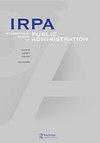在灾害和紧急情况下消除虚假信息:信息接受者的能力
International Review of Public Administration
Pub Date : 2020-10-01
DOI:10.1080/12294659.2020.1857056
引用次数: 3
摘要
摘要本研究调查了公民在灾害和紧急情况下识别虚假信息的能力。通过媒体制作和传播的虚假信息可能会造成社会混乱,并导致在灾害和紧急情况下应对不力。考虑到当前的媒体环境要求信息接收者具有一定程度的能力来判断信息的可信度,现有文献没有系统地了解什么构成了个人识别与灾害和紧急情况有关的虚假信息的能力。本研究利用一项关于公众获取与灾难和紧急情况有关的虚假信息的全国性调查,考察了媒体渠道使用、数字素养、社会参与和对政府的信任对灾害和紧急情况下识别虚假信息能力的影响。研究结果表明,公共当局或应急管理人员可以更好地提供一致和准确的信息,这种方式需要较少的数字素养,并进一步提高公众对政府与公众交换风险信息的信心。本文章由计算机程序翻译,如有差异,请以英文原文为准。
Weeding out false information in disasters and emergencies: information recipients’ competency
ABSTRACT This study investigates what competency matters for citizens’ identification of false information in disasters and emergencies. False information, produced and disseminated via media, can generate social confusion and lead to an inadequate response during disasters and emergencies. Considering that the current media environment requires information recipients to have a certain degree of competency to judge the trustworthiness of information, the existing literature does not provide a systematic understanding of what constitutes individuals’ ability to identify false information related to disasters and emergencies. Using a national survey of public access to false information related to a disaster and an emergency, this study examines the effects of media channel use, digital literacy, social participation, and trust in government on the ability to identify false information during disasters and emergencies. The findings suggest public authorities or emergency managers could better provide consistent and accurate information in a way that requires less digital literacy and further improves the public’s confidence in government regarding the exchange of risk information with the public.
求助全文
通过发布文献求助,成功后即可免费获取论文全文。
去求助
来源期刊

International Review of Public Administration
Social Sciences-Public Administration
CiteScore
2.00
自引率
0.00%
发文量
21
期刊介绍:
The International Review of Public Administration (ISSN 1229-4659) is published biannually by the Korean Association for Public Administration (KAPA) to provide a worldwide audience with the opportunity for communication and further understanding on issues of public administration and policy. There will be a triple-blind peer review process for all submissions of articles of general interest. There are no particular limitations on subject areas as long as they are related to the field of public administration and policy or deal with public employees. Articles should be analytic and demonstrate the highest standards of excellence in conceptualization, craftsmanship, and methodology.
 求助内容:
求助内容: 应助结果提醒方式:
应助结果提醒方式:


